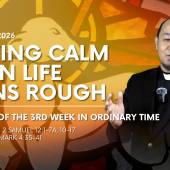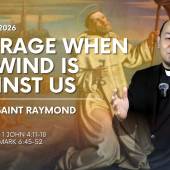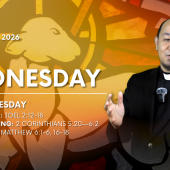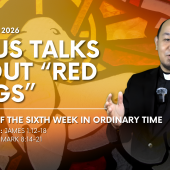Be confident to call God “Abba, Father”

March 8, Tuesday, 1st Week of Lent
St. John of God, religious
Isaiah 55:10-11, Matthew 6:7-15
Isaiah, the prophet of comfort and hope, has the assurance that God will bring the people of Israel from the exile of Babylon and will return joy and their homeland. This conviction of the prophet is rooted in the faithfulness and saving power of God's Word. As children of God, let us always feel called to turn to the Word of God, which is the saving force on which our faith and hope are based. It is a word that transforms our lives and makes them fruitful, as rain makes the earth bear the expected fruits.
The readings remind us that God is always willing to come to our aid; all we have to do is call out his name. Indeed, Jesus taught us how to address Him as Father in the Lord's prayer, but over-familiarity with this can be a significant disadvantage in this prayer even if we knew it off the top of our heads. Today, I want each of you to approach this prayer with a new perspective and understanding because it contains so much that God wishes to teach us.
Have we ever asked ourselves how to pray? Now, Jesus has provided us with an answer, a potent tool for determining how we should pray. Jesus addressed the Father in His native tongue, Abba, and for us, it may be Papa, Daddy, Tatay, or another affectionate term. Take note that you must address this prayer to the person you are praying for. When we pray to God, our Father follows our relationship with Him, not simply because we are asked to, or it is a requirement. "Your Will Be Done," said a father who is acutely aware of our predicament. What a blessing it is to have a benevolent father like Jesus.
Our Father in heaven knows everything we require, but He desires that we inquire from our hearts about what we genuinely want and demand and that our prayer is an answer to our physical and spiritual needs.
Is God a distant figure to me as I pray now?
Lord, teach me to pray!
Radio Veritas Asia (RVA), a media platform of the Catholic Church, aims to share Christ. RVA started in 1969 as a continental Catholic radio station to serve Asian countries in their respective local language, thus earning the tag “the Voice of Asian Christianity.” Responding to the emerging context, RVA embraced media platforms to connect with the global Asian audience via its 21 language websites and various social media platforms.














